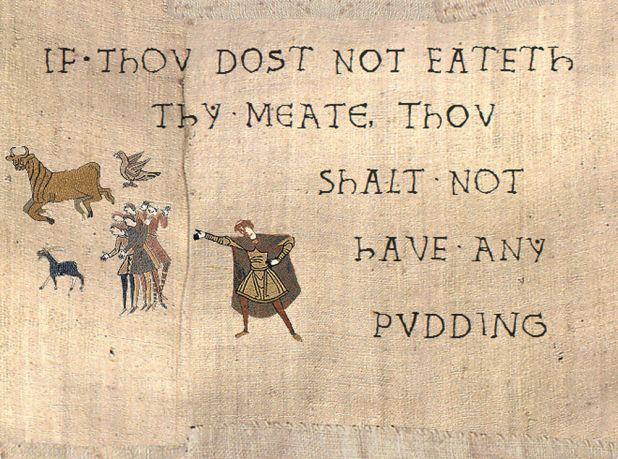Mind Your Manners – Modern and Medieval …
I hear it all the time. I see it every day. My parents point it out at every opportunity. Manners, or the lack there of. ‘Computer games, ipads, and those hand-held thingys’, my mother claims, are the root of the problem. ‘We played outside, nicely, with other children. We did not speak unless we were spoken to and we never, ever back chatted’.
Has society changed all that much? Are adolescents really that different from those living in the 12th century?
Daniel of Beccles believed direction was required, particularly for young men wishing to climb society’s tree. The Book of the Civilized Man (Urbanus Magnus Danielis Becclesiensis) also known as Liber Urbani or Urbanus Magnus or Civilized Man, is believed to be the first known English courtesy book and includes such gems as, ‘don’t mount your horse in the hall’ and ‘loosen your reins when riding over a bridge,’ practical advice at its best.

Fabulous medieval pearls of wisdom appear regularly within the 3000 lines of the poem - ‘receive gifts from great men with gratitude’ and ‘when eating at the table of the rich, speak little.’ Valuable advice just as relevant then as it is today.
The book is clearly aimed at educating men in the finer art of decorum, with several sections providing advice on both prostitutes and wives -‘If there is something you do not want people to know, do not tell it to your wife.’
And then there are my favourites, those that you would assume would be as obvious then as they are today, ‘If you wish to belch, remember to look up to the ceiling,’ and ‘do not openly excavate your nostrils by twisting your fingers’.
Finally, a few I simply cannot imagine my parents imparting to me, ‘do not hunt for fleas on your arms or bosom in front of the patron or in front of the servants in the hall.’ Charming! And ‘do not attack your enemy while he is squatting to defecate!’ Certainly not, I think it would be far better to let them poor man finish before killing him!







Admin
Admin
Admin